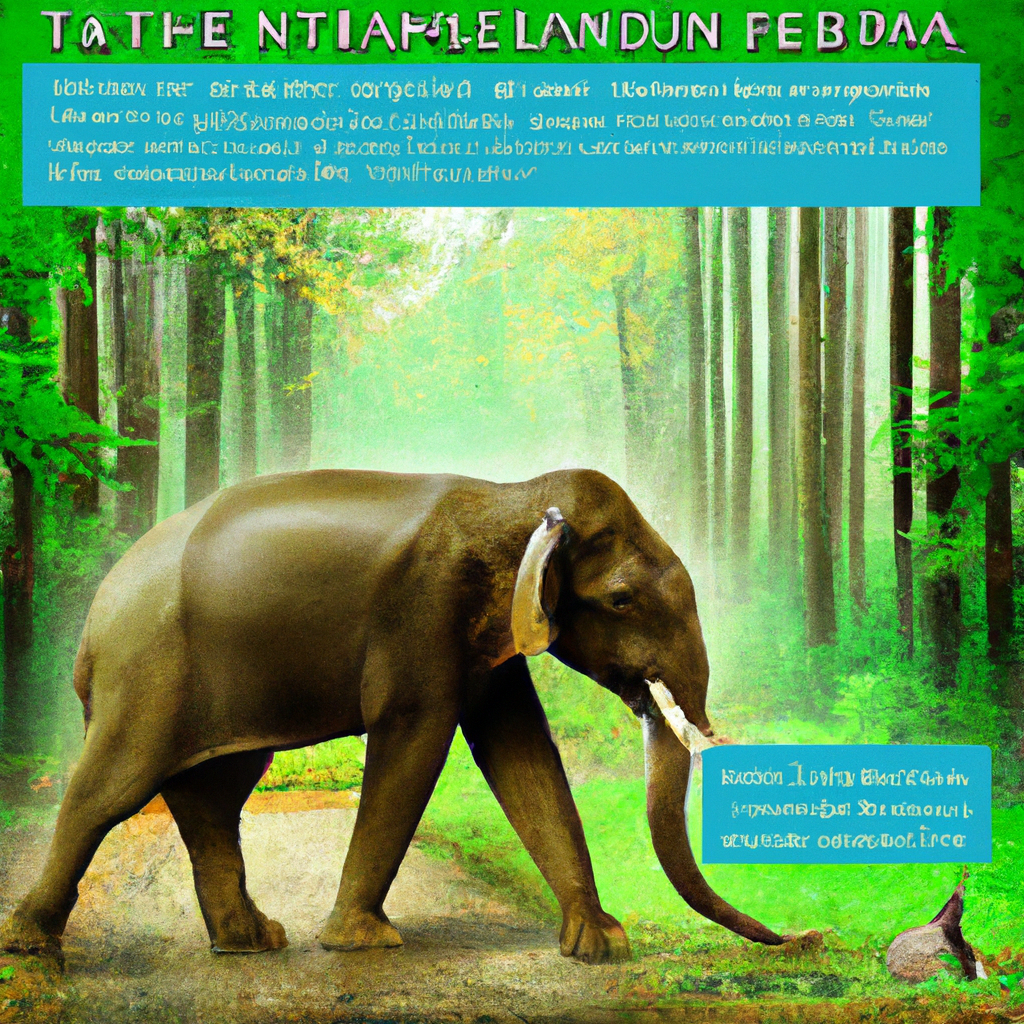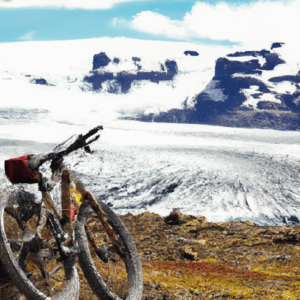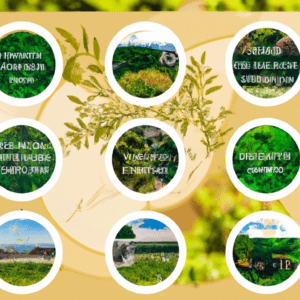Are you an adventure seeker who loves exploring the beauty of nature and wildlife? In this article, we will unravel the fascinating world of eco-tourism and how it allows you to experience nature without causing harm. Discover the ethical ways to connect with wildlife, understand their habitats, and support conservation efforts. Whether it’s embarking on a safari, visiting marine sanctuaries, or participating in community-based initiatives, you can explore the wonders of the natural world while ensuring its long-term preservation. Join us as we embark on an unforgettable journey that promotes sustainable travel and celebrates the intrinsic value of wildlife.
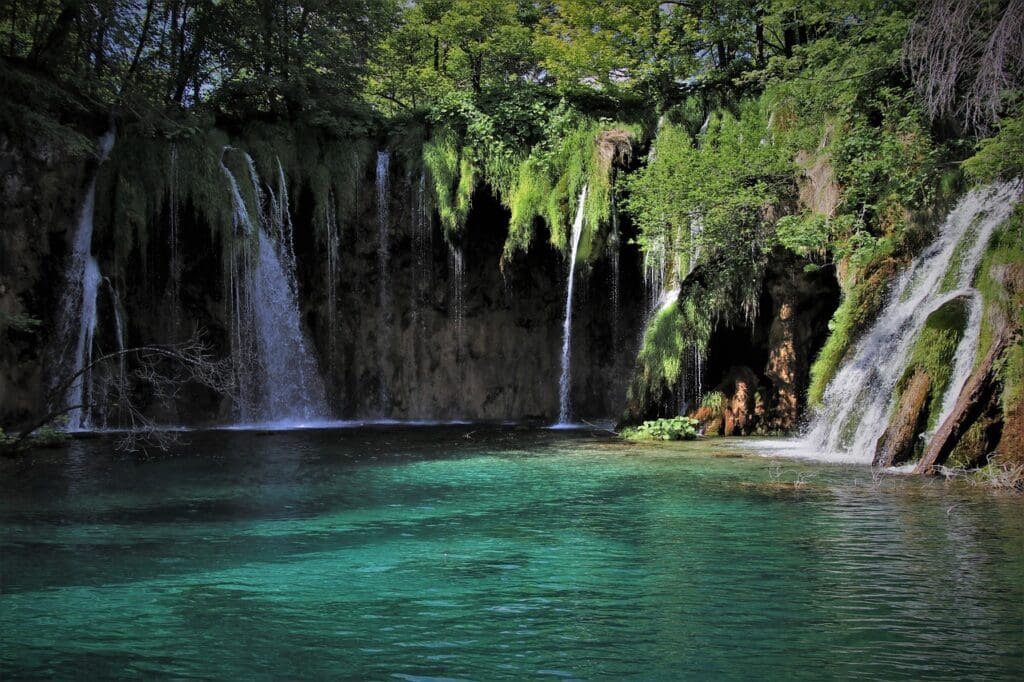

Understanding Eco-Tourism and Wildlife
Defining eco-tourism
Eco-tourism refers to responsible travel that fosters the conservation of natural environments and supports local communities. It is a form of tourism that focuses on minimizing negative impacts on the environment and promoting sustainable practices. Unlike traditional tourism, eco-tourism aims to educate travelers about the importance of wildlife preservation and provide opportunities for them to engage in conservation efforts.
Importance of wildlife preservation
Wildlife preservation is crucial for maintaining the ecological balance of our planet. It ensures the survival of various species and contributes to the overall health of ecosystems. Wildlife plays a vital role in pollination, seed dispersal, and pest control, which are essential processes for the functioning of ecosystems. Additionally, many species provide economic benefits through ecotourism, pharmaceutical discoveries, and scientific research. Preserving wildlife helps protect these invaluable contributions and maintain biodiversity for future generations to enjoy.
The impact of human activities on wildlife
Human activities have had a significant impact on wildlife populations and their habitats. Deforestation, pollution, climate change, and illegal wildlife trade are just a few examples of how human actions have disrupted ecosystems and led to the decline of many species. Increased urbanization and infrastructure development also fragment animal habitats, making it difficult for wildlife to thrive. Understanding the impact of our actions on wildlife is crucial for making informed choices and adopting responsible practices that mitigate these negative effects.
Choosing Responsible Eco-Tourism Destinations
Researching eco-tourism operators
When selecting an eco-tourism operator, it is important to conduct thorough research to ensure they adhere to responsible practices. Look for operators that prioritize wildlife conservation, have a strong commitment to sustainability, and engage in initiatives that benefit local communities. Reading reviews and testimonials from previous travelers can provide insights into the operator’s reputation and the experiences they offer.
Looking for certifications and accreditations
Certifications and accreditations from recognized organizations can serve as indicators of an eco-tourism operator’s commitment to responsible practices. Look for certifications such as the Global Sustainable Tourism Council (GSTC) or the Rainforest Alliance’s Sustainable Tourism Certification. These certifications demonstrate that the operator meets certain criteria in terms of environmental, social, and economic sustainability.
Considering the environmental policies of the destination
Before choosing an eco-tourism destination, consider the environmental policies in place. Research the country or region’s commitment to wildlife conservation, protected areas, and sustainable practices. Countries with robust environmental policies and initiatives are more likely to provide responsible eco-tourism experiences that prioritize the well-being of wildlife and the environment.
Supporting local communities and economies
Responsible eco-tourism involves supporting local communities and economies. Choose operators that collaborate with local communities, hire local guides, and provide opportunities for cultural exchange. By supporting local businesses and artisans, you contribute to the socio-economic development of the area, ensuring that the benefits of eco-tourism reach the community members who live in close proximity to wildlife habitats.
Avoiding attractions that exploit animals
It is crucial to avoid attractions that exploit animals for entertainment or profit. Activities such as elephant rides, dancing bears, or tiger petting are often harmful to wildlife and go against the principles of responsible eco-tourism. Instead, opt for wildlife encounters that prioritize observation, respect for animal habitats, and the promotion of ethical interactions.
Ethical Wildlife Interactions
Promoting observation over interaction
One of the key principles of responsible eco-tourism is promoting wildlife observation over direct interaction. Observing animals in their natural habitats allows them to carry out their natural behaviors without disturbance. It is important to remember that wild animals are not intended to be domesticated or treated as pets. By observing wildlife from a respectful distance, we can appreciate their natural beauty and behavior without causing them stress or harm.
Respecting animal habitats and behavior
Respecting animal habitats and behavior is essential for their well-being and conservation. Avoid trespassing into restricted areas or disturbing nesting sites, dens, or other important habitats. Keep in mind that animals have their own territories and social structures, and interfering with these can disrupt their natural way of life. Educate yourself about the species you may encounter during your eco-tourism experience to better understand their needs and behaviors.
Keeping a safe distance
Maintaining a safe distance from wildlife is important for both your safety and the well-being of the animals. Approaching animals too closely can cause stress, alter their behaviors, and potentially jeopardize their survival. Always follow the guidance of experienced guides or park rangers who are knowledgeable about animal behavior and understand the appropriate distance to maintain.
Avoiding feeding or touching wildlife
Feeding or touching wildlife can have serious consequences for both animals and ecosystems. Human food can disrupt an animal’s natural diet and lead to dependency, aggression, and malnutrition. Touching wildlife can transfer harmful bacteria or viruses and may cause animals to become habituated to human contact, making them more vulnerable to poaching or other dangers. Enjoy wildlife from a distance and leave their feeding and grooming to nature.
Leaving no trace
Responsible eco-tourism means leaving no trace of your presence in natural areas. Avoid littering and dispose of waste properly. Carry reusable water bottles, avoid single-use plastics, and respect the natural environment by staying on designated trails and paths. By being mindful of our impact, we can help preserve the beauty and integrity of wildlife habitats for future generations to enjoy.
Conservation-focused Initiatives
Supporting conservation organizations
Supporting conservation organizations is an impactful way to contribute to the protection of wildlife. These organizations play a crucial role in research, habitat preservation, and advocacy for wildlife. Consider donating to reputable conservation organizations or volunteering your time to participate in their projects. Your support can make a significant difference in the ongoing efforts to conserve and protect wildlife.
Participating in wildlife research programs
Many eco-tourism destinations offer opportunities for travelers to participate in wildlife research programs. These programs allow you to contribute to valuable scientific data collection, which helps in understanding and conserving wildlife. By actively engaging in research initiatives, you can gain a deeper appreciation for the importance of wildlife preservation and contribute directly to conservation efforts.
Engaging in habitat restoration projects
Habitat restoration projects play a vital role in improving and maintaining the habitats of wildlife. Participating in these projects can involve activities such as planting trees, removing invasive species, or restoring natural waterways. By engaging in habitat restoration, you actively contribute to the creation of healthy and sustainable environments for wildlife to thrive.
Making responsible choices as a consumer
As a consumer, you have the power to make responsible choices that benefit wildlife and the environment. Be conscious of the products you purchase and choose options that are sourced sustainably and do not contribute to habitat destruction or harm wildlife. Avoid purchasing products made from endangered species or that involve illegal wildlife trade. By supporting ethical and sustainable products, you contribute to the preservation of wildlife and their habitats.


Educational Opportunities for Eco-Tourists
Attending environmental awareness workshops
Many eco-tourism destinations offer environmental awareness workshops or seminars that provide valuable insights into wildlife conservation and sustainable practices. These workshops can help you understand the challenges faced by wildlife and the importance of conservation efforts. By attending these sessions, you can deepen your knowledge and become an advocate for responsible eco-tourism.
Taking part in guided tours with knowledgeable experts
Guided tours led by knowledgeable experts provide an excellent opportunity to learn about local ecosystems and the wildlife that inhabits them. These experts can share their in-depth knowledge and provide insights into the behaviors, habitats, and conservation needs of different species. Take advantage of the expertise offered by these guides to enhance your understanding and appreciation of wildlife.
Visiting wildlife rehabilitation centers
Visiting wildlife rehabilitation centers allows you to witness firsthand the efforts being made to rescue and rehabilitate injured or orphaned animals. These centers often have educational programs that provide insights into the challenges faced by wildlife and the importance of conservation. By visiting and supporting rehabilitation centers, you contribute to the care and well-being of wildlife in need.
Learning about local ecosystems and wildlife
In order to appreciate and protect wildlife, it is essential to learn about the local ecosystems and the diverse species that inhabit them. Educate yourself about the flora, fauna, and unique characteristics of the eco-tourism destination you plan to visit. By understanding the intricacies of the ecosystem, you can better appreciate the delicate balance of nature and the importance of maintaining it.
Promoting Sustainable Travel Practices
Choosing eco-friendly transportation
Choosing eco-friendly transportation options, such as hybrid vehicles, public transportation, or cycling, can significantly reduce your carbon footprint. When possible, opt for trains or buses instead of domestic flights, as air travel is one of the major contributors to greenhouse gas emissions. Carpooling or sharing rides with other eco-tourists is another sustainable option that can help minimize the environmental impact of travel.
Conserving resources during the trip
Conserving resources during your eco-tourism trip is essential for reducing your environmental impact. Practice good water conservation habits, such as taking shorter showers and reusing towels. Turn off lights and air conditioning when you leave your accommodation and unplug electronic devices when not in use. By being mindful of your resource consumption, you contribute to the sustainability of the destination and its wildlife.
Supporting eco-friendly accommodation
Choose eco-friendly accommodation that has implemented sustainable practices. Look for hotels or lodges that prioritize energy efficiency, waste management, and water conservation. Many eco-friendly accommodations also support local conservation initiatives or engage in community development projects. By staying in these establishments, you actively support their efforts and contribute to responsible tourism practices.
Reducing waste and recycling
Minimize waste and recycle whenever possible during your eco-tourism trip. Use reusable water bottles, eco-friendly toiletries, and cloth bags instead of plastic ones. Separate recyclable materials from general waste and dispose of them in designated recycling bins. Engage in beach clean-ups or other conservation activities organized by local operators. By reducing waste and recycling, you help keep the environment clean and protect wildlife from the dangers of pollution and waste.
Offsetting carbon footprint
Consider offsetting the carbon footprint of your eco-tourism trip by supporting carbon offset programs. These programs invest in projects that reduce greenhouse gas emissions, such as reforestation or renewable energy initiatives. By offsetting your carbon emissions, you take responsibility for the environmental impact of your travel and contribute to long-term sustainability.


Responsible Wildlife Photography
Respecting wildlife and their habitats
Responsible wildlife photography starts with respecting the animals and their habitats. Avoid disturbing or distressing wildlife for the sake of capturing a photograph. Always prioritize their well-being over getting the perfect shot. Be conscious of the locations where you photograph wildlife and ensure that your presence does not harm or disrupt their natural behaviors.
Avoiding invasive flash photography
Using flash photography can startle or disturb wildlife, especially nocturnal animals or those with sensitive eyes. Avoid using flash when photographing wildlife, as it can cause unnecessary stress or disorientation. Instead, utilize natural lighting techniques or long exposure settings to capture stunning wildlife images without interfering with their natural environment.
Using telephoto lenses and zoom capabilities
To photograph wildlife without disturbing them, utilize telephoto lenses and zoom capabilities. These tools allow you to capture close-up shots without physically intruding on the animal’s space. By maintaining a safe distance, you can observe wildlife without causing stress or altering their behavior.
Understanding photography ethics
Understanding photography ethics is crucial for responsible wildlife photography. Research and educate yourself about the code of conduct and best practices for photographing wildlife. Avoid harassing or baiting animals, altering their habitats, or manipulating their behavior for a photograph. Always prioritize the welfare of the animals and respect their natural ecosystems.
Sharing photos responsibly and ethically
When sharing your wildlife photographs, do so responsibly and ethically. Avoid geotagging or providing specific location details that could potentially lead to increased human disturbance or risk to the animals. Instead, focus on sharing your experiences and promoting the value of wildlife preservation. Use your photographs as a means to educate and inspire others to appreciate and protect wildlife.
The Role of Local Communities in Conservation
Involving local communities in conservation efforts
Local communities play a vital role in conservation efforts. Engage and involve them in initiatives that promote responsible eco-tourism and wildlife preservation. Collaborate with local communities to develop sustainable tourism practices that benefit both the environment and their livelihoods. By involving local communities, you empower them as stewards of their natural resources and create a sense of ownership and responsibility.
Supporting sustainable livelihoods
Supporting sustainable livelihoods within local communities is integral to successful conservation. Encourage economic opportunities that align with wildlife conservation and sustainable practices. Support community-based enterprises that promote eco-friendly products or services, such as ecotourism, local crafts, or sustainable agriculture. By contributing to sustainable local economies, you help create alternatives to practices that harm wildlife and their habitats.
Promoting cultural exchange and understanding
Responsible eco-tourism involves promoting cultural exchange and understanding between travelers and local communities. Respect and appreciate the cultural heritage of the communities you visit. Engage in respectful dialogue, learn from local traditions and customs, and be open to experiencing different ways of life. By fostering cultural exchange, you create a deeper connection and appreciation for the people, wildlife, and environments of the eco-tourism destination.
Working against illegal wildlife trade
Combatting illegal wildlife trade is essential for wildlife conservation and the well-being of local communities. Stay informed about the laws and regulations in place to protect wildlife, and report any suspicious activities related to illegal wildlife trade. Support organizations and initiatives that work towards eradicating this destructive practice. By taking a stand against illegal wildlife trade, you contribute to the protection and preservation of wildlife populations.
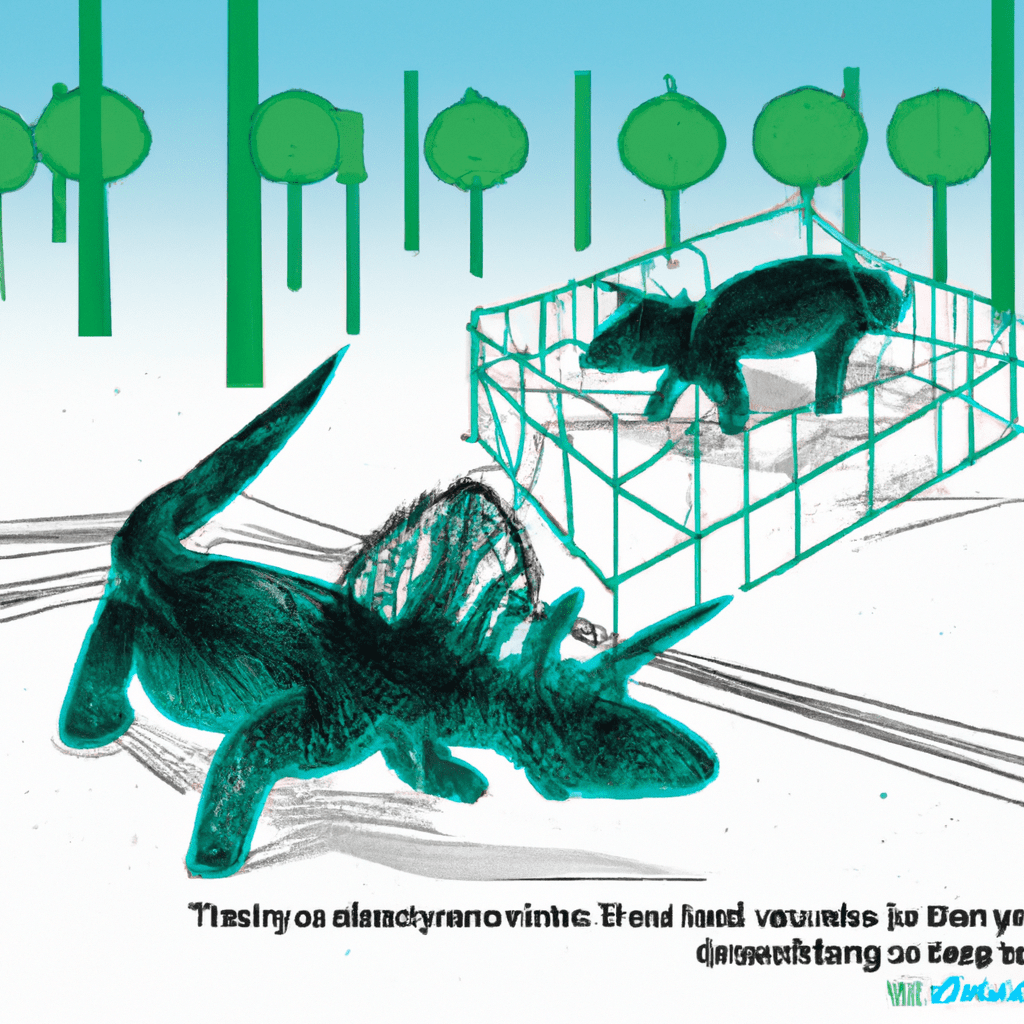

The Importance of Public Awareness
Raising awareness about eco-tourism
Raising public awareness about eco-tourism is critical for fostering a culture of responsible travel. Educate others about the principles and benefits of eco-tourism, emphasizing its focus on wildlife preservation, sustainability, and community engagement. Use social media, blogs, or community events to share your experiences and promote responsible travel practices to a wider audience.
Highlighting the value of wildlife preservation
Emphasize the value of wildlife preservation when raising public awareness. Share success stories of conservation efforts and the positive impacts they have had on wildlife populations and their habitats. Highlight the intrinsic value of wildlife and its importance for the health of ecosystems and the well-being of future generations. By showcasing the value of wildlife preservation, you inspire others to take action and make responsible choices.
Educating tourists about responsible practices
Educating tourists about responsible eco-tourism practices is crucial for sustainable travel. Provide information and resources that help travelers make informed decisions and adopt responsible behaviors. Encourage them to choose eco-friendly accommodations, avoid exploitative attractions, and support local communities. By educating tourists, you empower them to become responsible travelers who prioritize the well-being of wildlife and the environment.
Lobbying for stricter regulations and enforcement
Advocate for stricter regulations and enforcement of laws related to eco-tourism and wildlife conservation. Join or support organizations that work towards policy changes, stricter penalties for wildlife crimes, and improved enforcement measures. Write to local government officials, attend public hearings, or participate in campaigns that seek to protect wildlife and their habitats. By engaging in advocacy efforts, you contribute to creating a legal framework that supports responsible eco-tourism practices.
Conclusion
Eco-tourism and wildlife preservation go hand in hand. Choosing responsible eco-tourism destinations, engaging in ethical wildlife interactions, supporting conservation initiatives, and promoting sustainable travel practices are vital for preserving wildlife and their habitats. Educational opportunities for eco-tourists, along with public awareness and engagement, play a significant role in fostering a culture of responsible travel that values wildlife conservation. By adopting these practices, we can explore the beauty of nature without exploitation and contribute to a sustainable future for wildlife and our planet.
